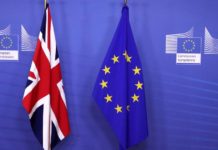Fighting for human rights with banks, not tanks: New bill angers Russia
Canada shouldn’t put too much stock into Russia’s angry statements over a new bill that would enable sanctions on foreigners who violate international human rights, according to an American financier who supports the measures.
Bill S-226, also known as the Sergei Magnitsky Law, is named after the Moscow lawyer who died in a Russian prison after he accused the Kremlin of stealing $230 million from a foreign investment fund.
The legislation would allow Canada to forbid business dealings with any foreigners — not just Russians — who break internationally agreed upon human rights rules.
The bill passed with unanimous support in the House of Commons on Wednesday night.
But Russia has called the legislation a direct attack on its foreign affairs and suggested that Canada would not impose sanctions on the U.S. for “for capital punishment, legalizing tortures, unlawful detentions in Guantanamo Bay and CIA secret prisons in Europe.”
“While keeping a blind eye on real human rights violations in the U.S. and Canada, Russophobes target Russia in S-226 because of hatred and bias,” the Russian embassy in Canada said in a statement on Tuesday.
Financier Bill Browder once hired Magnitsky to investigate his investment fund and has fought for justice ever since his death in 2009. He has since testified before a Parliamentary committee and U.S Congress in support of the measures.
“This is one of our biggest pieces of leverage in the West,” Browder told CTV’s Power Play on Wednesday. “We don’t have to go to war with Russia with tanks. We can use banks.”
The U.S. passed a similar law in 2012 under the Obama administration. Russia reacting by scrapping its adoption program with the U.S., a move that angered human rights groups in both countries.
For Russia-Canada relations, such repercussions are already off the table. In 2014, Russia banned adoptions to all countries that recognize same-sex marriage.
Browder says that Putin takes Magnitsky-inspired laws “personally” because it could affect his own foreign holdings.
“Putin hates this because Putin is a kleptocrat — he’s a criminal. He’s stolen lots of money, all the people around him have stolen lots of money, and they’re all potentially subject to the Magnitsky Act,” he said.
“All the money that they’ve stolen that they keep in the West could eventually be seized and frozen. And that terrifies him.”
Browder is part of a team looking to uncover where the $230 million of stolen tax money that Magnitsky exposed went. He says that “millions” in “dirty money” is in Canada, but would not confirm exactly how much because he is involved with law enforcement.
“We’ve traced some of that money to Canada and we’re now actively engaged with law enforcement in Canada to prosecute and seize that money from the people who have stolen it,” he said.
“What I can say is it’s significant and it’s real, and that’s just one particular situation.”
The bill is hardly the first blow to Canada-Russia relations; Canada has already joined other Western nations by sanctioning Russia. Foreign Affairs Minister Chrystia Freeland has been a harsh critic of Putin, and the Kremlin has imposed a travel ban on her.
As for Russia’s threats of response, Browder says they usually follow a pattern.
“The way that the Russians operate is they huff and they puff, and then they carry on with business. I wouldn’t be too concerned with this sort of non-specific threat,” he said.
Source: CTVNews.ca










